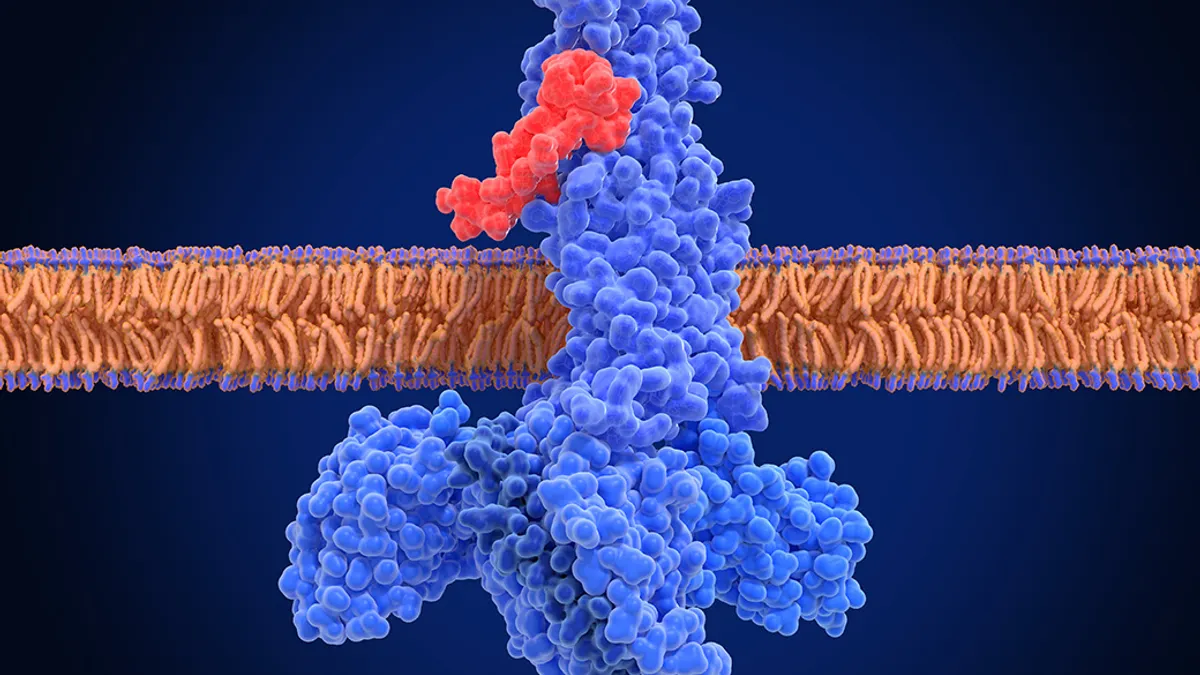Dive Brief:
- An experimental weight loss pill developed by biotechnology company Terns Pharmaceuticals helped some people with obesity lose more than 5% of their body weight in a small Phase 1 trial, supporting plans to move the drug into mid-stage testing next year, the company said Monday.
- Trial volunteers who received the highest tested dose of Terns’ drug lost nearly 5 percentage points more weight than those who received a placebo over 28 days, the company said. Two-thirds lost over 5% of their body weight, suggesting the effects could be more substantial if the drug were to be taken over a longer period of time.
- The trial results indicate Terns could become a competitor in the race to develop pills for obesity. Injectable drug from Novo Nordisk and Eli Lilly currently dominate the market, but they and others, among them Pfizer and Roche, are vying to develop oral alternatives.
Dive Insight:
Terns is following what’s becoming a familiar playbook for obesity drug developers: Prove a prospect can cut around 5% of body weight in four weeks with acceptable side effects, and use that information to design a Phase 2 trial. In the last year alone, Structure Therapeutics and Viking Therapeutics have executed similar plans and been rewarded by investors. Terns now joins them, with shares rising by about 25% in mid-morning trading Monday.
The reward could be massive. Analysts expect the yearly market for obesity drugs will reach $100 billion by early next decade. Novo’s Wegovy and Lilly’s Zepbound have entrenched themselves as formidable products, capable of shedding pounds as well lowering the risk of obesity-related health problems. Terns and others believe there will be room for oral alternatives, but they have ground to make up, as Novo and Lilly are the closest to market with pills of their own. They’ll also have to show the benefits are worth the often gastrointestinal-related side effects that crop up in testing.
The data Terns disclosed Monday showed six of nine trial volunteers who received a 740-milligram, daily dose of TERN-601 — the highest the company tested — experienced moderate side effects, primarily nausea. None of those who experienced nausea reduced their doses or stopped taking Terns’ pill, though, and all completed treatment.
A 500-milligram dose of TERN-601 also led to statistically significant weight loss when compared to a placebo. People who received that dose lost 4.4% of their body weight, compared to less than 1% for placebo recipients.
Graig Suvannavejh, an analyst with Mizuho Securities, wrote in a note to clients that he was “very pleased with the totality of the data,” and that there were “no red flags” that could impede further development.
Terns plans to present additional data from the Phase 1 study at an upcoming medical meeting.













